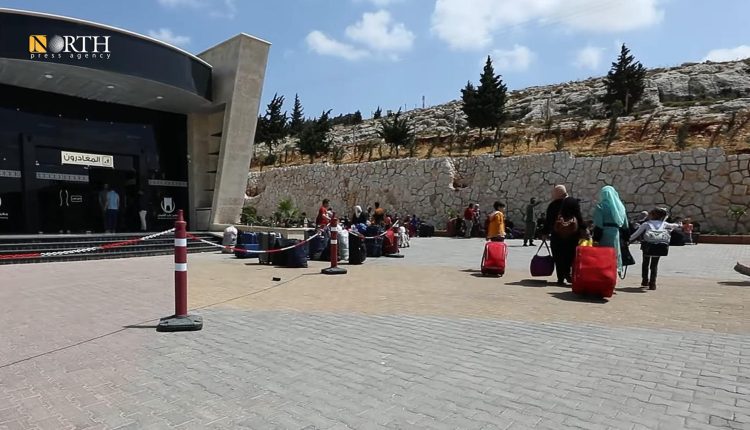UNHCR: 60% of Syrian Refugees Want to Visit Syria Before Deciding on Return
By Kardo Roj
DAMASCUS, Syria (North Press) – A significant portion of Syrian refugees remain hesitant about permanent repatriation, with 60% expressing a desire to visit Syria before making a final decision, according to Gonzalo Vargas Llosa, the UNHCR representative in Syria.
Speaking on Saturday, Llosa confirmed that 270,000 refugees have returned to Syria since the fall of the Assad regime in December 2024, and many more are considering repatriation in the coming year.
A regional survey on return intentions indicates that more than a quarter of Syrian refugees are planning to move back within the next 12 months, hoping to rebuild their lives. However, significant challenges persist.
Obstacles to Permanent Return
Despite the increasing interest in repatriation, Llosa noted that key concerns continue to hinder the return process. The primary barriers include:
- Housing, land, and property rights: Many refugees fear they will not be able to reclaim their homes or land.
- Safety concerns: Persistent security threats and instability in some areas remain a major deterrent.
- Access to essential services: The availability of healthcare, education, and employment opportunities remains uncertain.
- Economic hardships: The economic situation in Syria, exacerbated by years of war and international sanctions, presents a challenge for returnees.
The Role of Humanitarian Assistance
The UNHCR stressed the need for international support to facilitate a safe and sustainable return. Refugees considering repatriation require financial aid, transportation assistance, and guarantees of security and property rights, Llosa added.
Meanwhile, humanitarian organizations have called for increased funding to support both returning refugees and host communities to ensure a smooth reintegration process.
The Road Ahead
The return of Syrian refugees is a crucial issue for neighboring countries like Turkey, Lebanon, and Jordan, which have hosted millions of displaced Syrians for over a decade. With evolving political conditions in Syria, the repatriation process is expected to accelerate in 2025, but experts emphasize the need for a comprehensive, rights-based approach to avoid coercion and ensure a dignified return.
For many Syrians, visiting their homeland before making a final decision could help bridge the trust gap and allow them to assess the realities on the ground before committing to permanent resettlement.

